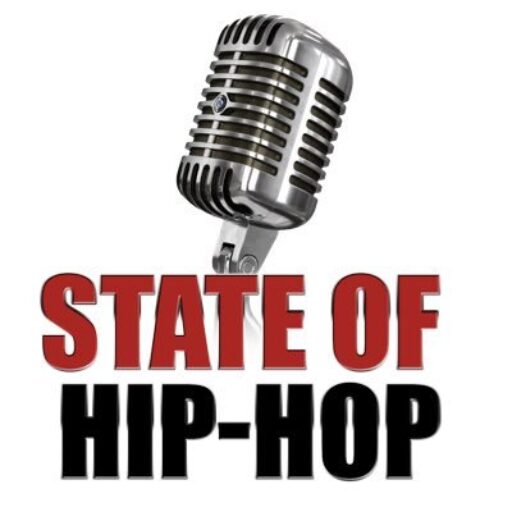Nick Cannon recently shared that he has been clinically diagnosed with narcissistic personality disorder during an episode of his Counsel Culture podcast on November 8. The host, executive producer, and father of 12 spoke about his diagnosis with his guest, Dr. Cheyenne Bryant, a fixture on the podcast circuit.
“I did get diagnosed with it,” he said. “I’ve taken all the power away from the term narcissism because I’ve researched it totally. You call me whatever you want,” Cannon continued.
He shared more details about how he was adjusting to the medical label with People while volunteering at the Los Angeles Mission. “I feel like there are so many labels out there, but it’s like being able to embrace it and say, ‘Look, I’m healing. I need help. Show me.’ I embrace mental health and therapy in such a strong way,” said Cannon.
Discussions surrounding narcissistic personality disorder have become more common, but there are many misconceptions about it. Below is what you need to know about the disorder. What is narcissistic personality disorder?
According to a 2017 article published in the Journal of Behavioral Medicine, Narcissistic personality disorder is defined as “is characterized by a persistent pattern of grandiosity, fantasies of unlimited power or importance, and the need for admiration or special treatment. Individuals with NPD may experience significant psychological distress related to interpersonal conflict and functional impairment.”
Cannon said he did not meet all of the nine specific symptoms included in the criteria to be diagnosed with narcissistic personality disorder. These symptoms include intense rage and a lack of empathy. They are pervasive.
“I have no rage,” said Cannon. “I’m very empathetic.”
How common is narcissistic personality disorder?
Your Instagram explore page might be saturated with endless narcissistic abuse tales, but clinical diagnoses for the disorder are handed out sparingly. According to the Journal of Current Psychiatry Reports, between “0.5% and 5% of adults in the U.S. have narcissistic personality disorder.” Camille Lester-Riley, LMHC, LCPC, confirmed this. “It’s not as common as we think,” she told Black Health Matters during an interview. “Everything can’t be narcissism,” she added.
Asha Tarry, CLC, offered a potential explanation for the rare rate of diagnosis for narcissistic personality disorder. “That’s mostly because people with that clinical diagnosis are not often seen in therapy,” Tarry told Black Health Matters. “So they don’t find a reason for themselves to need or seek support in that way.”
Is narcissistic personality disorder always apparent?
It is not always easy to instantly spot someone with this disorder. “Someone may see a person with this type of disorder at work and see them a few hours of the day and think of them as charming and sincere and likable and approachable,” said Tarry. “They’re not getting the full breadth of this individual.”
How can you deal with a narcissist?
“You want to be mindful of what you say about them in public because they are very sensitive to embarrassment and criticism,” advised Tarry. “And although they may not snap on you where people are around to see it, they will create a smear campaign against you. If you go against them, they will do things to harm you psychologically.”
It is essential to be thoughtful in your interactions with someone you suspect is a narcissist. Consider the consequences of any action you take against them.
Narcissists might cut you off from a support system. “They will alienate you from other people, so you must take it seriously,” Tarry added.
Can narcissistic personality disorder be treated?
There are limited treatment options for narcissistic personality disorder. According to the University of Chicago, “Psychiatrists use psychotherapy, but the often-stigmatized personality disorder is a challenging condition to treat in part because so little is known about its biology. The Journal of Behavioral Medicine reported that “A prominent challenge in the conceptualization of NPD cases revolves around the heterogeneity in the presentation of the disorder and significant symptomatologic overlap with other Cluster B personality disorders.”
Progress is being made, however. The Journal of Personality Disorders published a study investigating potential biological causes of the disorder, which could advance treatment options.
Who can diagnose a narcissist?
No matter how many hours you spend on the clock app, you are not a clinician. The only person who can diagnose a narcissist is someone with the letters behind their name that empowers them to do so. Armchair diagnoses are not only inaccurate, they are dangerous. There are strong stigmas associated with NPD. Lester-Riley has concerns about the casual labeling of people by those not qualified to hand out diagnoses.
“I think specifically personality disorders, feel extremely stigmatizing because it shows that there’s like a lack of trust that people might have with you or with who you are portraying to be,” said Lester-Riley.
Why should you avoid tossing around the term narcissist?
It’s understandable to want to declare every annoying ex, shady former friend, and micromanaging boss a narcissist, but that is not your place.
Avoid labeling people with terms you don’t understand, and focus on what is best for your mental health. Just because you disagree with someone or you feel like they are being a jerk does not mean that they are a textbook narcissist.
“People are using things that they don’t necessarily understand because maybe they feel someone has mistreated them, and so they’re taking the term out of its own proper and appropriate place,” said Tarry.
“There’s such an overuse of the term,” Lester-Riley said. “I think ‘therapy speak’ is so frustrating.” “It’s just harmful, and I think it downplays the severity of NPD across the board,” she added.
“I would never ask anyone that’s not a trained professional to diagnose anyone or even use that language,” said Lester-Riley.
“That word we’re using colloquially shouldn’t be used by lay people. It’s a clinical term used in social science and medicine,” added Tarry. “We’re seeing it over-indexed in just everyday jargon.”
BHM Recommends: Your Mental Health: Setting Boundaries Unapologetically
The post Nick Cannon Has Narcissistic Personality Disorder appeared first on Black Health Matters!.


